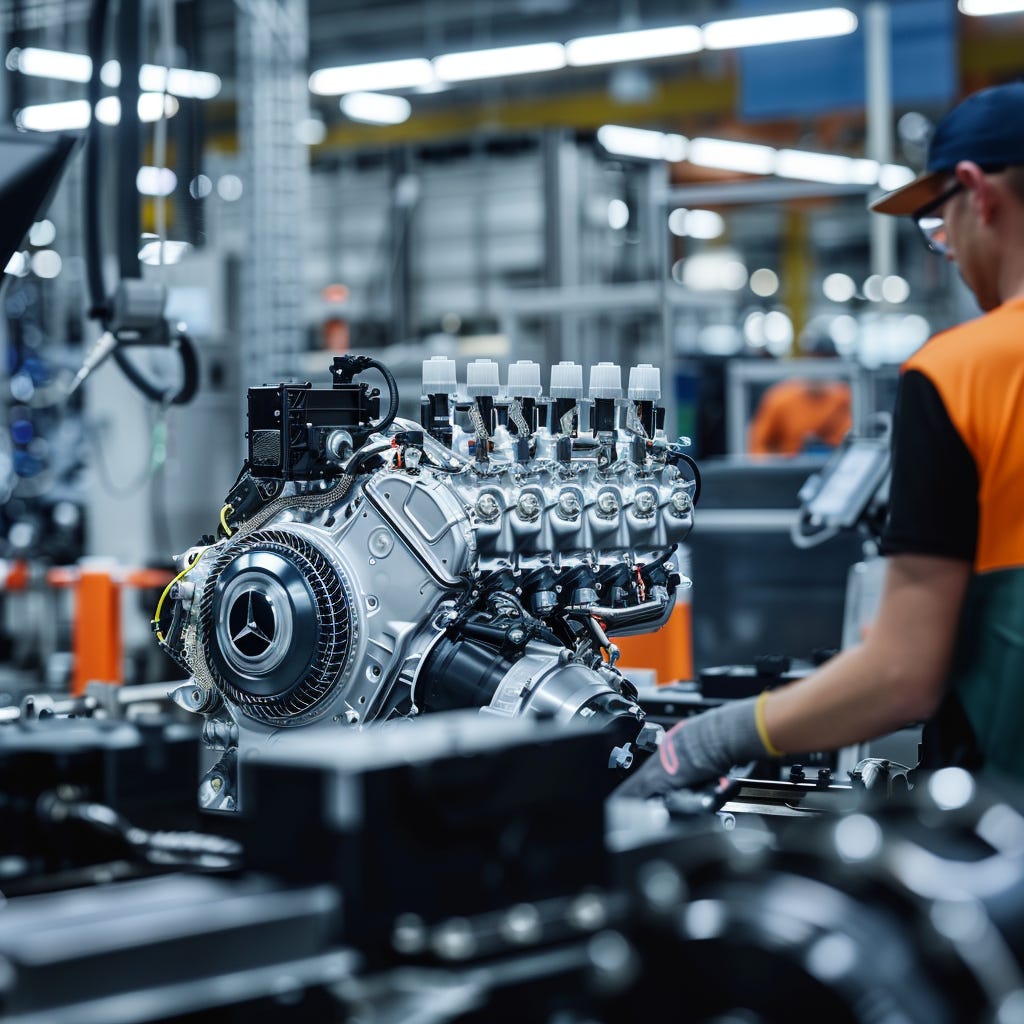1. Mercedes-Benz Delays Electrification Goal, Emphasizes Continued Focus on Combustion Engines
What happened:
Mercedes-Benz has announced a delay in its electrification goal by five years, now aiming for electrified vehicles, including hybrids, to account for up to 50% of total sales by 2030. This marks a shift from their previous target set in 2021 to reach the 50% milestone by 2025 with mostly all-electric cars. The company emphasized its commitment to updating its combustion engine models, with plans for new lineup updates in 2027 to carry them into the 2030s.
How it happened:
The delay in Mercedes-Benz's electrification goal is attributed to the slower-than-expected adoption of electric vehicles (EVs) compared to the pace of investment in EV capacity and technology development. This has led carmakers to adjust their production plans to align with actual EV demand.
Why it is important:
The announcement by Mercedes-Benz reflects broader challenges in the automotive industry regarding the transition to electric vehicles. Among the key challenges are:
- Market Demand: Despite growing interest in EVs, the market demand for combustion engine vehicles remains strong, particularly in regions where infrastructure and consumer acceptance of EVs are still developing. Car companies are adjusting their production to meet current market preferences and maintain profitability.
- Cost Considerations: EVs often require significant upfront investment in research, development, and manufacturing infrastructure. In the short term, car companies may prioritize cost-effective combustion engine models to maintain profitability and fund future EV developments.
- Supply Chain Constraints: The supply chain for EV components, such as batteries and electric motors, is still developing and faces constraints in meeting the growing demand for EVs. Car companies prioritize combustion engine vehicles, which have a more established supply chain, to avoid production delays and meet customer demand.
- Alternative Technology Development: Some car companies may see other technologies such as hydrogen fuel cell technology as a promising alternative to EVs. Hydrogen fuel cells offer longer driving ranges and faster refueling times compared to EVs.
- Regulatory Environment: The regulatory landscape for EVs varies globally, with some regions implementing strict emissions standards and incentives to promote EV adoption, while others have less stringent regulations. Car companies may adjust their production strategies based on these regulations to comply with local requirements and avoid penalties.
Likely consequences:
- Mercedes-Benz's delay in electrification could impact its competitive position in the EV market, especially if other automakers make faster progress in this area.
- The company's focus on updating its combustion engine models may help maintain its market share in regions where EV adoption is slower, such as certain parts of Europe.
- The positive market reaction, with shares rising following the news, suggests investor confidence in Mercedes-Benz's strategy and its ability to navigate the evolving automotive landscape.
Keep reading with a 7-day free trial
Subscribe to Tech Blueprint to keep reading this post and get 7 days of free access to the full post archives.





